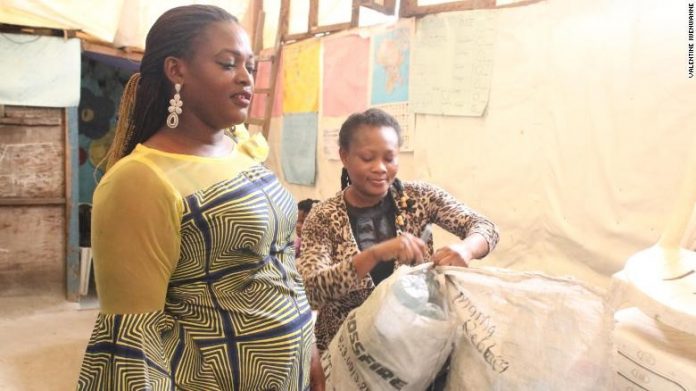By Valentine Iwenwanne and Aisha Salaudeen, for CNN
As a petty trader earning a pittance from trading car engine oil at bustling Ajegunle market in Nigeria’s economic capital, Lagos, Oluwaseyi does not earn enough to cover her daughter’s the annual 18,000 naira (around $50) school fees.
“Whenever a new session is about to commence, sometimes we get worried when there is no money, coupled with the challenges of taking care of the home,” Oluwaseyi told CNN.
However, thanks to a recent partnership with Africa Cleanup Initiative (ACI), an NGO with focus on sustainability, Oluwaseyi’s daughter’s school, Morit International School, now accepts the plastic bottles, also known as PET bottles, in exchange for school fees.
Through a program called RecyclesPay, ACI collaborates with schools in low-income communities to allow parents who are unable to afford fees for their children to pay using plastic bottles they collect.
Twice a month Oluwaseyi visits her daughter’s school with bags full of sorted plastic bottle recyclables.
The cost of tuition is determined by how many PET bottles she has collected; for every 200 kilograms of recyclable bottles, Oluwaseyi can earn up to ₦4,000 (about $11) off the term’s tuition of ₦7500 (about $24).
Bottles collected from parents are sorted and compressed by Wecyclers, a social enterprise in Nigeria with a focus on waste collection.
ACI partnered with them to ensure that all PET bottles are converted to reusable materials.
There are more than 450,000 megatons of plastic waste discarded in Lagos waters every year, according to reports in local media.
Nigeria generates huge amounts of plastic waste, and according to 2017 Ocean Atlas report, Nigeria is ranked number 11 in the world for plastic pollution, posing health risks to citizens and causing environmental damage.
Alexander Akhigbe, founder of ACI, says through the RecyclesPay scheme he is providing solutions to Nigeria’s environmental and climate issues.
So far, ACI has run its projects in five schools in Lagos and has reached more than 1,000 school children, he says.
“We are working on the deplorable state of the Nigerian environment and on the other hand improve education by using plastic bottles to substitute tuition fees so as to encourage parents to send their children to school and then save more money to fix other challenges at home,” Akhigbe told CNN.
Nigeria has been tagged the poverty capital of the world, with 87 million Nigerians, around half of the country’s population, living on less than $1.90 per day.
As a result, the country has an alarming rate of out of school children —10.5 million, the highest in the world, according to Unicef.
Akhigbe, 42, says he hopes to help reduce this number while also encouraging proper disposal of plastic. Read the original Article on CNN



